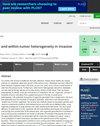Indirect reciprocity with Bayesian reasoning and biases
IF 3.6
2区 生物学
引用次数: 0
Abstract
Reputations can foster cooperation by indirect reciprocity: if I am good to you then others will be good to me. But this mechanism for cooperation in one-shot interactions only works when people agree on who is good and who is bad. Errors in actions or assessments can produce disagreements about reputations, which can unravel the positive feedback loop between social standing and pro-social behaviour. Cooperators can end up punished and defectors rewarded. Public reputation systems and empathy are two possible mechanisms to promote agreement about reputations. Here we suggest an alternative: Bayesian reasoning by observers. By taking into account the probabilities of errors in action and observation and their prior beliefs about the prevalence of good people in the population, observers can use Bayesian reasoning to determine whether or not someone is good. To study this scenario, we develop an evolutionary game theoretical model in which players use Bayesian reasoning to assess reputations, either publicly or privately. We explore this model analytically and numerically for five social norms (Scoring, Shunning, Simple Standing, Staying, and Stern Judging). We systematically compare results to the case when agents do not use reasoning in determining reputations. We find that Bayesian reasoning reduces cooperation relative to non-reasoning, except in the case of the Scoring norm. Under Scoring, Bayesian reasoning can promote coexistence of three strategic types. Additionally, we study the effects of optimistic or pessimistic biases in individual beliefs about the degree of cooperation in the population. We find that optimism generally undermines cooperation whereas pessimism can, in some cases, promote cooperation.间接互惠与贝叶斯推理和偏见
声誉可以通过间接互惠促进合作:如果我对你好,那么其他人也会对我好。但是,只有当人们对谁好谁坏达成一致时,这种一次性互动中的合作机制才会起作用。行动或评估中的错误会导致对声誉的分歧,从而破坏社会地位和亲社会行为之间的正反馈循环。合作者最终会受到惩罚,而叛逃者则会得到奖励。公共声誉系统和同理心是促进就声誉达成一致的两种可能机制。在此,我们提出了一种替代方案:观察者的贝叶斯推理。通过考虑行动和观察中的错误概率,以及他们对人群中好人比例的先验信念,观察者可以使用贝叶斯推理来判断某人是否是好人。为了研究这种情况,我们建立了一个进化博弈理论模型,在这个模型中,参与者可以公开或私下使用贝叶斯推理来评估声誉。我们针对五种社会规范(打分、回避、简单站队、逗留和严厉评判)对这一模型进行了分析和数值探索。我们将结果与代理人在确定声誉时不使用推理的情况进行了系统比较。我们发现,相对于不推理的情况,贝叶斯推理减少了合作,但 "打分 "规范除外。在评分规范下,贝叶斯推理可以促进三种战略类型的共存。此外,我们还研究了个人对群体合作程度的乐观或悲观偏差的影响。我们发现,乐观主义通常会破坏合作,而悲观主义在某些情况下会促进合作。
本文章由计算机程序翻译,如有差异,请以英文原文为准。
求助全文
约1分钟内获得全文
求助全文
来源期刊

PLoS Computational Biology
生物-生化研究方法
CiteScore
7.10
自引率
4.70%
发文量
820
期刊介绍:
PLOS Computational Biology features works of exceptional significance that further our understanding of living systems at all scales—from molecules and cells, to patient populations and ecosystems—through the application of computational methods. Readers include life and computational scientists, who can take the important findings presented here to the next level of discovery.
Research articles must be declared as belonging to a relevant section. More information about the sections can be found in the submission guidelines.
Research articles should model aspects of biological systems, demonstrate both methodological and scientific novelty, and provide profound new biological insights.
Generally, reliability and significance of biological discovery through computation should be validated and enriched by experimental studies. Inclusion of experimental validation is not required for publication, but should be referenced where possible. Inclusion of experimental validation of a modest biological discovery through computation does not render a manuscript suitable for PLOS Computational Biology.
Research articles specifically designated as Methods papers should describe outstanding methods of exceptional importance that have been shown, or have the promise to provide new biological insights. The method must already be widely adopted, or have the promise of wide adoption by a broad community of users. Enhancements to existing published methods will only be considered if those enhancements bring exceptional new capabilities.
 求助内容:
求助内容: 应助结果提醒方式:
应助结果提醒方式:


